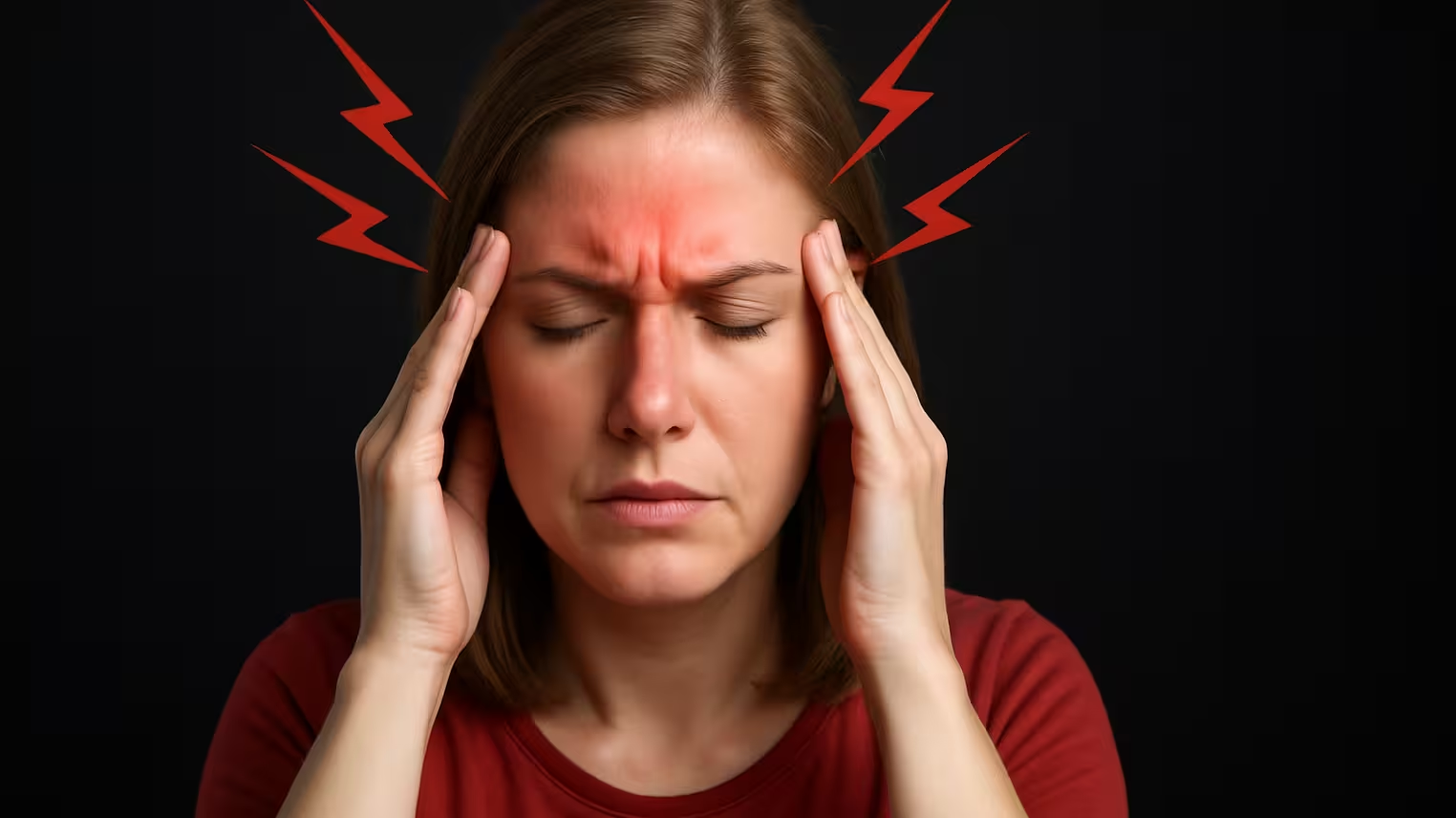Headaches affect millions of people every day. You may reach for pain relievers often, but that doesn’t solve the root problem. Many common triggers lead to recurring headaches. When you understand those causes and take action, you gain better control over your health.
This blog post breaks down the main reasons you keep getting headaches and provides practical, active solutions to manage and prevent them.
Table of contents
Types of Headaches You Might Experience
Before exploring the causes, learn the most common types of headaches:
Tension Headaches
You feel a tight band around your head. Stress and poor posture usually cause them.
Migraine Headaches
You may experience intense, throbbing pain on one side of your head. Migraines often include nausea, light sensitivity, and sound sensitivity.
Cluster Headaches
These headaches appear in patterns or “clusters” and create intense pain around the eye. They occur less often but hurt severely.
Sinus Headaches
These headaches happen with facial pressure, a stuffy nose, and sometimes a mild fever.
Rebound Headaches
You might get these headaches from overusing pain medications like ibuprofen or acetaminophen.
Also Read: Best Cough Suppressant: Simple Remedies to Stop Coughing Fast
Common Causes of Frequent Headaches
1. Dehydration
Your brain needs water to work properly. Without enough water, it temporarily contracts, causing pain.
Fix: Drink at least eight glasses of water each day. Add electrolytes if you sweat often.
2. Stress and Anxiety
Tight muscles in your neck and shoulders from stress lead to tension headaches.
Fix: Use daily stress-reduction methods like breathing exercises, yoga, or meditation.
3. Lack of Sleep
Poor sleep habits confuse your body’s pain signals.
Fix: Sleep 7 to 9 hours each night. Stick to a routine and reduce screen time before bed.
4. Poor Posture
If you slouch or hunch over screens, your neck muscles strain and trigger headaches.
Fix: Adjust your workstation ergonomically. Sit upright and stretch every hour.
5. Diet Triggers
Certain foods, like aged cheeses and processed meats, can lead to headaches.
Fix: Track your meals in a journal and identify personal triggers.
6. Caffeine Overuse or Withdrawal
Too much caffeine shrinks blood vessels. Stopping suddenly may cause withdrawal headaches.
Fix: Keep caffeine intake between 200-400 mg daily. Cut back gradually if needed.
7. Eye Strain
Staring at screens for long periods stresses your eyes and causes headaches.
Fix: Every 20 minutes, look 20 feet away for 20 seconds.
8. Hormonal Changes
Women may get headaches from changes in estrogen levels during menstruation, pregnancy, or menopause.
Fix: Track your menstrual cycle and speak with a doctor about options.
9. Medical Conditions
High blood pressure, sinus infections, and TMJ disorders may cause headaches.
Fix: Schedule regular check-ups. Ask your doctor about specific symptoms.
10. Overuse of Pain Medications
Frequent use of pain relievers may worsen headaches.
Fix: Limit over-the-counter painkillers to twice per week unless prescribed otherwise.
When to See a Doctor
Sometimes, you need medical help to manage headaches. Contact a doctor if you:
- Experience headaches several times a week
- Wake up with head pain often
- Feel sudden, severe head pain
- Notice blurred vision or confusion
- Get headaches after any injury
A physician may refer you to a neurologist for further testing.
Natural and Preventive Remedies
1. Stay Hydrated
Carry a reusable water bottle to stay on track.
2. Eat Clean
Focus on fresh produce, lean protein, and whole grains.
3. Exercise Regularly
Walk, stretch, or work out for 30 minutes most days.
4. Use Essential Oils
Apply peppermint or lavender oil to your temples.
5. Try Acupressure
Pressing specific pressure points may reduce tension.
6. Get a Massage
Massage therapy improves circulation and relieves tight muscles.
7. Limit Screen Time
Use blue-light filters and schedule screen breaks.
Lifestyle Tips for Long-Term Headache Prevention
You can avoid frequent headaches by taking a proactive approach:
- Drink water before you feel thirsty
- Avoid skipping meals
- Sleep and wake at consistent times
- Sit and stand with proper posture
- Take screen breaks often
- Practice daily stress relief
These steps create a healthy routine that supports your brain and nervous system.
Final Thoughts
Headaches signal that something in your life or body needs attention. When you spot patterns and take healthy action, you reduce their frequency and severity. You hold the power to make small changes that bring lasting relief.
If your headaches persist or become disabling, don’t wait—get a medical evaluation. Your health matters, and help is available.





